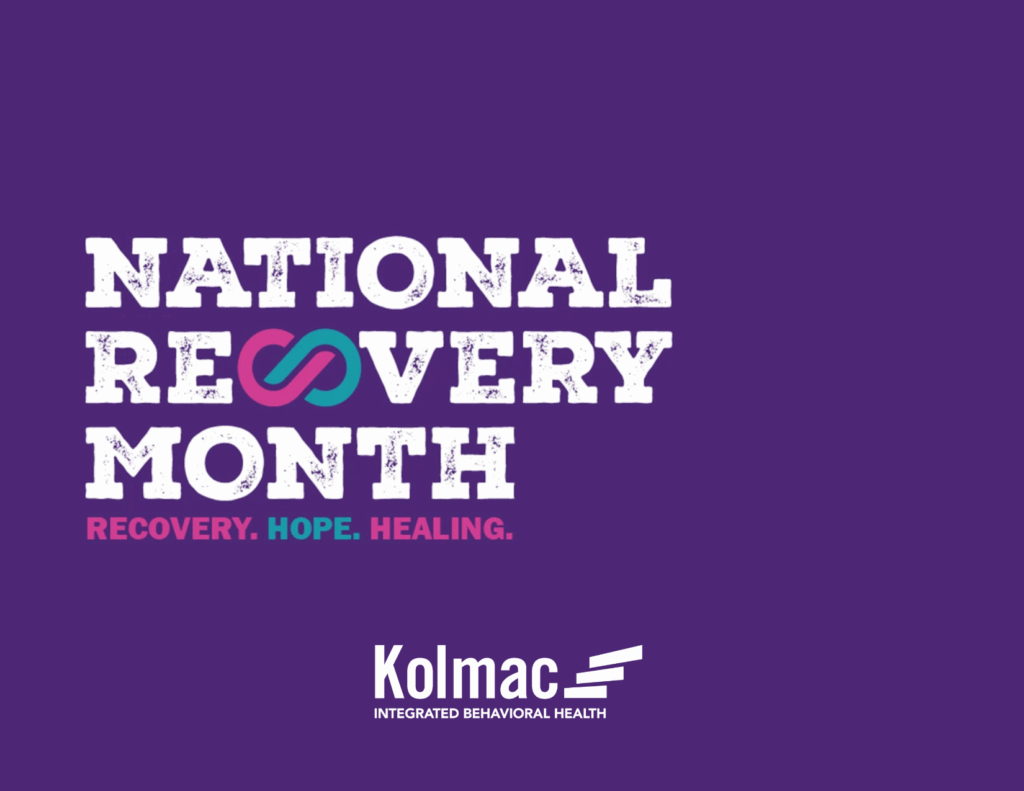Every September, Kolmac joins the nation in recognizing National Recovery Month. It is a time to honor those on the path to recovery, support the families and communities who walk beside them, and highlight what works in healing from substance use disorder. Recovery is not only about stopping substance use. It is about restoring hope, rebuilding life, and embracing resilience.
Why Recovery Matters
-
Addiction is a chronic disease. Like diabetes, asthma, or hypertension, it follows a pattern of relapse and remission. With the right care, people can and do achieve long-term wellness.
-
Treatment works. People who engage in evidence-based treatment improve health outcomes, reduce risky behaviors, restore relationships, and often return to meaningful employment or school.
Key Statistics
These numbers show why continuing treatment is so important:
| Statistic | What it shows |
|---|---|
| 40–60% relapse rates after treatment for substance use disorder | The National Institute on Drug Abuse estimates that between 40 and 60 percent of individuals in recovery will relapse at some point. This does not mean treatment failed. It means support must continue. |
| About 66% relapse for alcohol use disorder within the first 6 months | Research shows that two thirds of people treated for alcohol use disorder relapse in the first six months. Early treatment support is crucial. |
| 70.2% experienced one or more relapses over 5 years | A 5 year follow up study found that most patients experienced at least one relapse. Continuous support and aftercare improved outcomes. |
| 29.8% maintained continuous abstinence over 5 years | Less than a third of participants stayed completely abstinent for five years, but many had significant recovery periods. Attendance in aftercare programs greatly improved their chances. |
| 68–71% abstinence among women in long residential treatment (6+ months) | Studies of women who stayed in treatment six months or more showed high abstinence rates compared to much lower rates among those who left treatment early. |
What Kolmac Offers
Kolmac’s outpatient model helps patients remain connected to their families, workplaces, and communities while receiving treatment. Our programs combine therapy, medication-assisted treatment, and a continuum of care that includes individual counseling, group therapy, and peer support. Most importantly, we focus on keeping people engaged long enough to build new habits, strengthen relapse prevention skills, and establish support systems that last.
At Kolmac, we believe in the journey of recovery. We see every day that people have the strength to heal, grow, and reclaim their lives. This Recovery Month, we celebrate every step forward and every person who chooses recovery.
